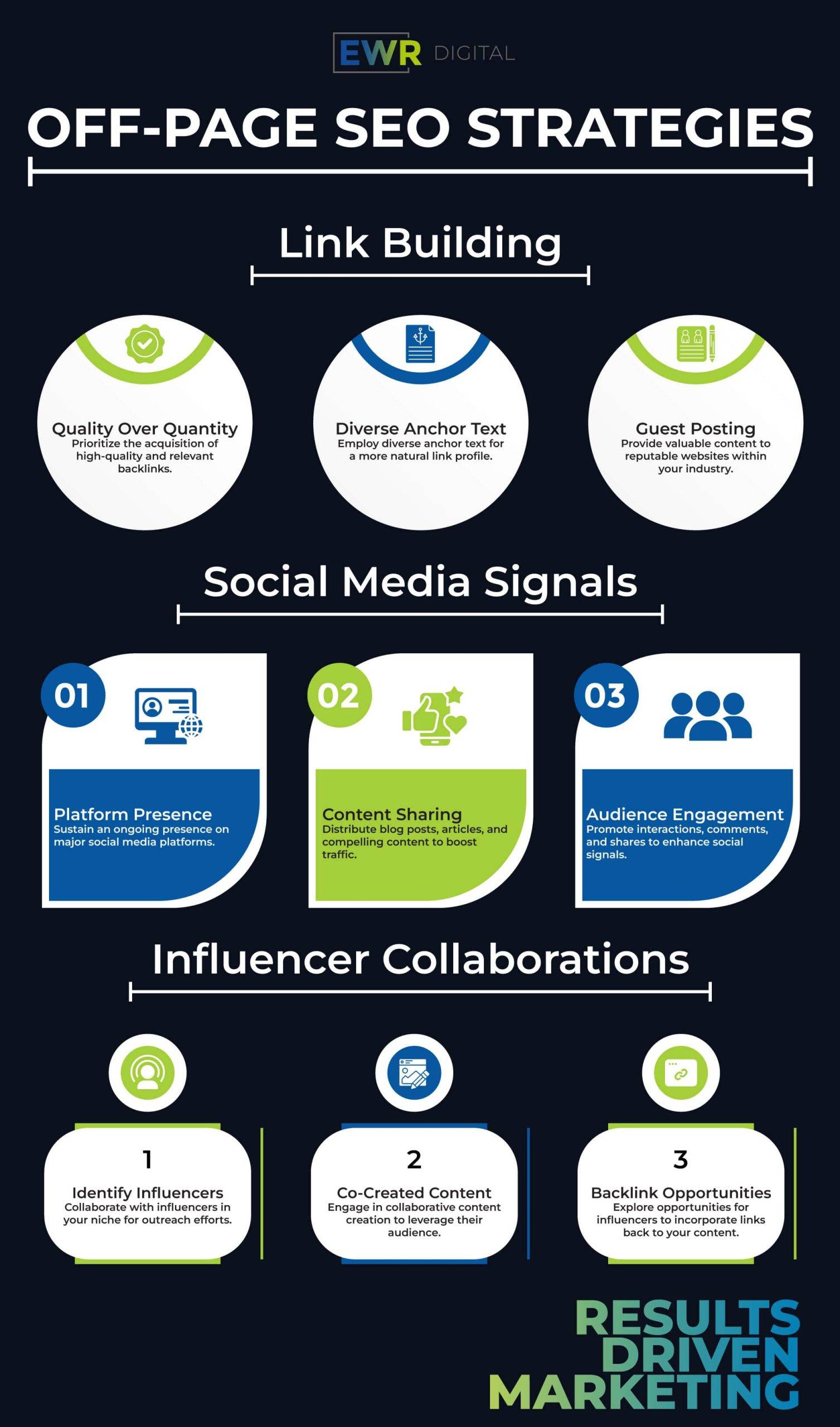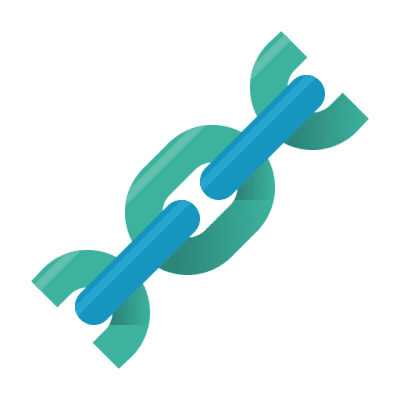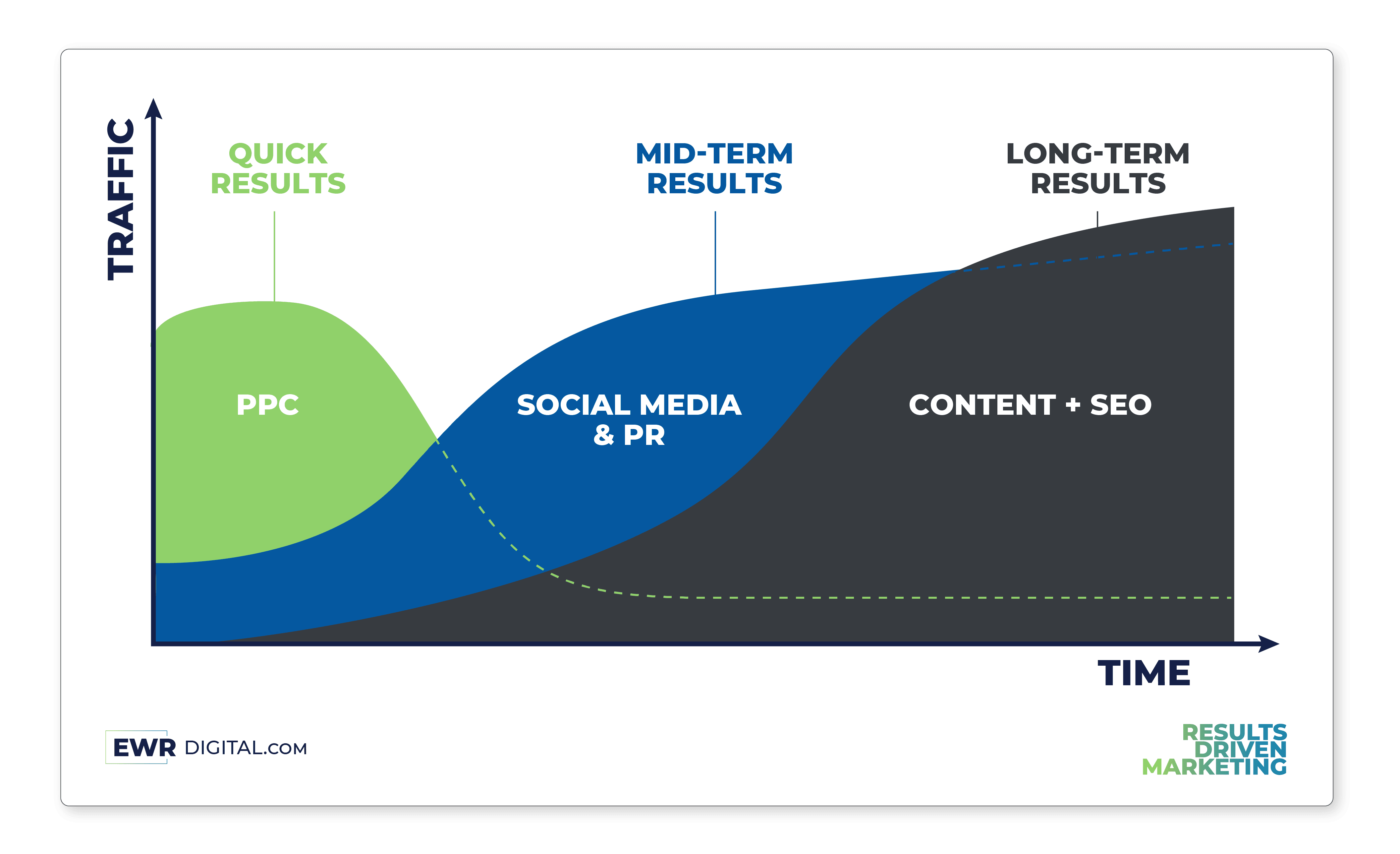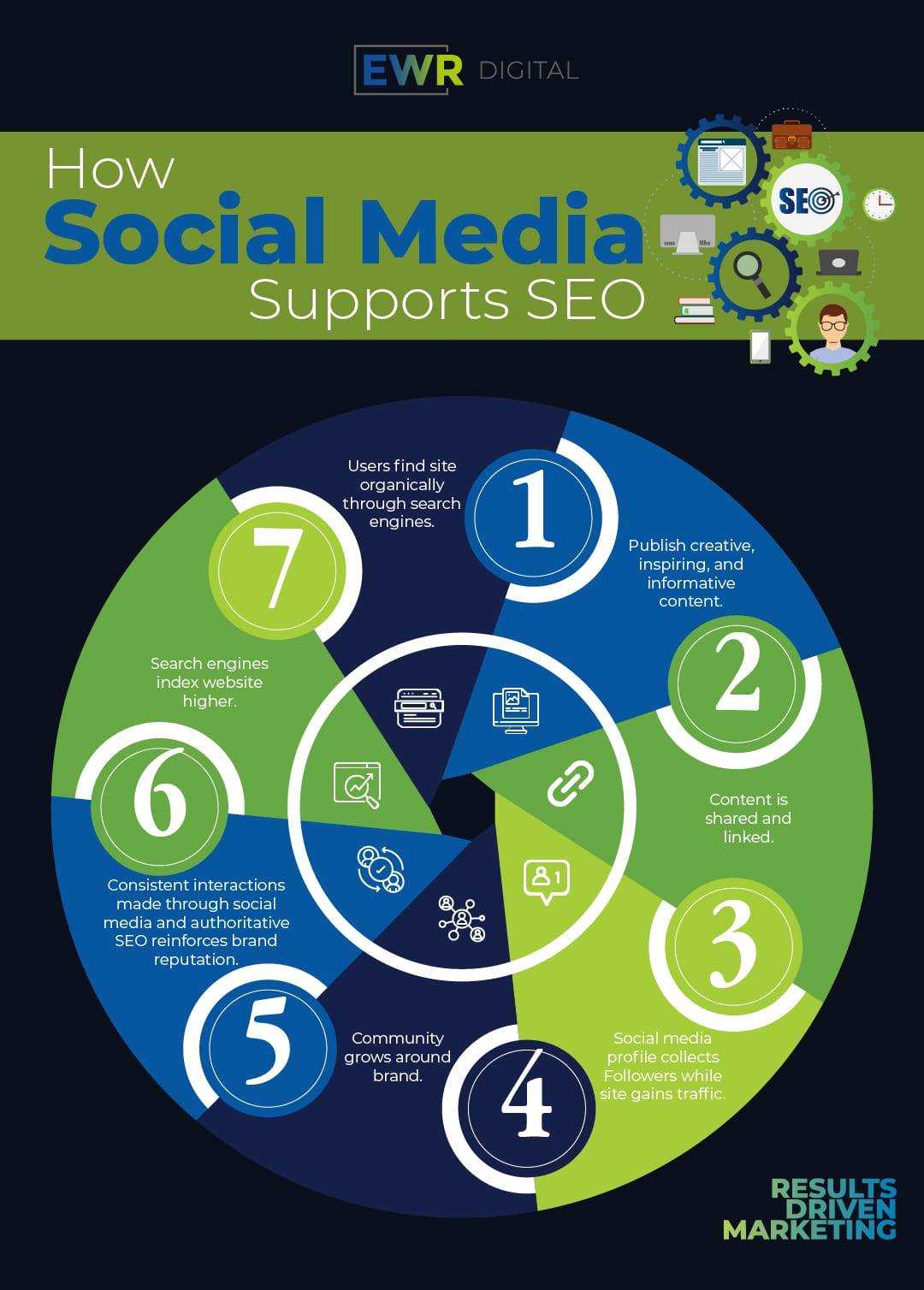You’re business has been doing pretty great, thanks in part to the great team you have handling your on-page SEO. But as you look at your page you start to wonder, “Is there something I could be doing off-page? Is there such a thing as backlink building?”
If you’ve been wondering about off-page SEO, read on to learn more about how it can boost your Google ranking.
What is Off-Page SEO?
Off-page SEO refers to the activities conducted outside of your own website to improve its search engine rankings and visibility. While on-page SEO focuses on optimizing your website’s content and structure, off-page SEO involves building external signals and promoting your site to increase its authority, relevance, and trustworthiness in the eyes of search engines.
Some common off-page SEO techniques include:
Link building: Acquiring high-quality backlinks from reputable and relevant websites is crucial for off-page SEO. These links act as “votes of confidence” for your site and can improve its search engine rankings. However, it’s important to focus on quality rather than quantity, as search engines value authoritative and relevant links. Do things acquire: earned links.
Acquiring earned links, also known as natural or organic links, involves gaining backlinks to your website. These links are obtained through the merit of your content, expertise, or brand reputation. Don’t actively seek, swap or paying for them.
- Create Exceptional Content: Producing high-quality, valuable content is one of the most effective ways to attract earned links. When your content is informative, unique, and engaging, other website owners and bloggers are more likely to reference it and link back to it as a valuable resource. Invest time in creating in-depth articles, comprehensive guides, original research, infographics, or videos that stand out and provide genuine value to your target audience.
- Build Relationships with Influencers and Industry Experts: Developing genuine relationships with influencers and industry experts can lead to earned links through collaborations and mentions. Engage with them on social media, share their content, and contribute to relevant discussions. When you establish rapport and demonstrate your knowledge, they may naturally reference your content or mention your brand in their own articles or social media posts, resulting in valuable backlinks.
- Conduct Original Research and Surveys: Conducting unique research or surveys within your industry can attract attention and earn links from other websites. When you provide valuable data or insights that others find useful, they are likely to reference your research in their content, blog posts, or reports, and link back to your original study. This approach positions you as an authoritative source and generates organic backlinks.
- Participate in Online Communities and Forums: Engaging in relevant online communities, forums, and discussion boards allows you to showcase your expertise and contribute valuable insights. By actively participating in discussions and providing helpful answers to questions, you can establish yourself as a knowledgeable resource. As a result, community members may link to your website when referencing your expertise or recommending your content.
- Create Shareable Visual Assets: Developing visually appealing and shareable assets, such as infographics, charts, or diagrams, can attract earned links. Visual content tends to be highly shareable and link-worthy. Craft visually appealing assets that present valuable information or statistics, and provide an embed code or easy sharing options. When others find your visual content useful, they may share it on their websites, blogs, or social media platforms, giving you earned links in return.
Remember, acquiring earned links takes time, effort, and a focus on providing value to your audience and industry. By consistently creating outstanding content, building relationships, and demonstrating expertise, you can naturally attract organic backlinks that boost your website’s authority and search engine rankings. Here are also a bunch more ideas to acquire backlinks.
Here are also some other examples of actions you can take to acquire earned links:
- Social media marketing: Engaging with your audience on social media platforms can help generate buzz, increase brand awareness, and drive traffic to your website. Social signals, such as likes, shares, and comments, can indirectly impact your search engine rankings. These are links.
- Online reputation management: Managing your online reputation involves monitoring and influencing how your brand is perceived on the internet. By actively participating in online discussions, addressing customer feedback, and maintaining a positive brand image, you can enhance your website’s credibility and authority. You want to get people talking about you.
- Influencer outreach: Collaborating with influencers or industry experts and get a conversation going with them and talking about your brand or your content can help expand your reach, gain visiblity, and increase positive sentiment which Google can understand.
Remember, off-page SEO is an ongoing process that requires consistent effort and a focus on building genuine relationships, creating valuable content, and providing a positive user experience. To put it simply, off-page SEO is search engine optimization that happens off your page. If done right, off-page SEO (also called off-site SEO) can improve your rankings within search engine results pages (SERPs).

Off-page SEO allows you to be in control of your brand.

Why Does Off-Page SEO Matter
We don’t blame you for wondering this. If you’ve got some good SEO going on your own site you might think that’s enough. But the truth is SEO off your page is just as important as on your page. While we don’t know the exact math Google uses, we do know that it loves seeing your business and website name in other places besides your website. Listen to Gary Illyes talk about sentiment here.
More importantly, taking control of SEO that’s off your site allows you to take control of your brand. Picture this a second: You have a growing real estate company. It’s going so well that your client list is bursting. Then, one day, a client’s dream home got an offer before they had the chance to submit one. It’s no one’s fault; it happens. You remind your client that there are more houses out there and assume everything is fine – until you check Twitter.
Not only is your client upset, but they’re also tweeting about what happened. If the only web presence you have is your website, people might see your customer’s one-sided tweet instead of all the other great things your company has to offer. This is why it’s crucial that you take control of your brand now before someone else does.
Plus, with you at the reigns of your off-page SEO, what people say about your company won’t matter as much because of all the positive content already out there.

The more popular the website, the better the backlink.

Backlinks
A backlink is when another website links back to your website. It is three of the strongest forms of off-site SEO. There are two types of backlinks:
- Natural links are backlinks that websites are given without much work. Say a customer loves your product so much that they put a link to your website on their website or social network page. The bonus of a backlink like this is that A) you didn’t have to ask for it; and B) because someone is organically linking to your site, the recommendation of you will feel more genuine, and that goes a long way.
- Self-created offpage links are backlinks that you create yourself by adding your website to online directories or NAP listings. While it’s true that more backlinks equal better off-page SEO, it’s important to note that too many self-created links can actually damage your Google ranking. If Google sees that you’re creating low quality backlinks almost everywhere that create no real value, they’ll view your website and business as spam and might rank you lower than you’d like. The key to backlinks is to choose ones that will have the most visibility and use, like BBB or YellowPages. The more popular the website, the better the backlink that are relevant in todays and have true authority.
-
Internal links are an essential aspect of SEO that often doesn’t receive as much attention as external links. While external links from other websites carry significant weight in terms of authority and relevance, internal links play a crucial role in enhancing your website’s structure, user experience, and overall SEO performance.
Here’s how internal links contribute to SEO:
- Improved Website Structure: Internal links help establish a logical and organized structure for your website. By interlinking relevant pages within your own site, you create a clear pathway for search engine crawlers to navigate and understand the content hierarchy. This aids in indexing and ranking your web pages effectively.
- Enhanced User Navigation and Experience: Internal links provide users with a seamless and intuitive way to navigate your website. When strategically placed within your content, these links guide visitors to related or relevant pages, encouraging them to explore further. By offering convenient access to valuable information, you can improve user engagement, decrease bounce rates, and increase the time visitors spend on your site—all of which are positive signals for search engines.
- Distribution of Page Authority and Ranking Power: Internal links distribute page authority and ranking power across your website. When you link from a high-authority page to other pages within your site, you pass along a portion of that authority. This helps search engines understand the importance and relevance of your interconnected pages. By strategically linking to important pages or optimizing anchor text, you can enhance the visibility and ranking potential of specific content.
- Keyword Relevance and Contextual Significance: By using relevant keywords as anchor text in your internal links, you provide search engines with valuable contextual information about the target page. When search engines see a keyword-rich internal link pointing to a specific page, it reinforces the relevance and topic association of that page. This can help improve the ranking potential for the targeted keyword or topic.
- Indexation and Crawling Efficiency: Internal links ensure that search engine crawlers can discover and access all pages of your website efficiently. When search engine bots encounter internal links, they follow those links to navigate through your site and index the associated content. By providing a clear and interconnected internal linking structure, you minimize the chances of important pages being overlooked or not indexed by search engines.
- Historical Data and User Behavior Signals: Internal links can help search engines understand the historical data and user behavior patterns on your website. By analyzing the frequency and patterns of internal linking, search engines can gain insights into which pages are considered important, frequently visited, or most relevant to your overall content. This information can influence search engine rankings and the visibility of your web pages.
In summary, while external links are highly valuable for SEO, internal links should not be overlooked. They contribute to your website’s structure, user experience, and overall SEO performance. By strategically interlinking relevant pages, you can enhance navigation, distribute authority, improve keyword relevance, aid in indexation, and provide valuable signals to search engines about the importance and relationship of your content.
Social media marketing lets you connect with your customers on a personal level.

Social Media Marketing
SMM (social media marketing) is great for off-page SEO. It allows you to interact with your customers, promote deals, and delight followers with content. It also increases the soical signals to the content on your website and Google can hear the sentiment. Take, for instance, a blog post. You’ve just posted a great blog about a service you provide. By posting on your socials you’re not only putting your business name out there, but you’re also linking back to your main website.
Social media is also great for connecting with customers. Let’s take another look at the situation from above. If you have a Twitter account you could reply to the client’s tweet and let them know you’re just as upset about what happened and want to make things right and Google can understand that and if people are talking about you positively or negatively it can understand that as well.
Social media platforms provide powerful tools for managing and shaping your online reputation. By actively engaging with your audience, addressing feedback, and showcasing your brand’s values, you can effectively manage your reputation and establish a positive online presence. Social media allows you to directly communicate with customers, respond to their inquiries or concerns, and provide timely support. By promptly addressing and resolving issues publicly, you demonstrate transparency and a commitment to customer satisfaction, which can enhance your brand’s reputation. Additionally, sharing valuable content, industry insights, and positive customer experiences on social media helps build trust and credibility. By consistently monitoring and participating in conversations about your brand, you can proactively manage your reputation, shape public perception, and foster a positive online image.
Get the Off-Page SEO You Need Today!
Find out more by talking to the experts today! We’ll craft you a marketing plan that works for you to increase your ranking and grow your business.
EWR Digital is a great marketing and SEO agency that’s been helping businesses grow since opening its doors in 1999. Get to know us better. Interested in a 20-minute call with one of our SEO experts?
What is Off-Page SEO? | EWR Digital – Houston, TX




